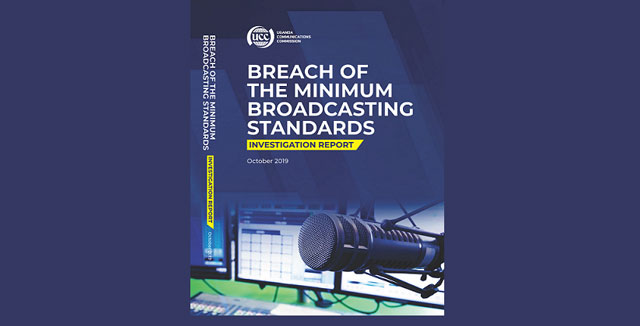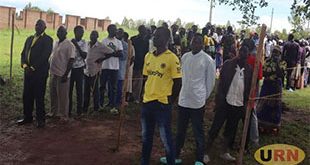
Kampala Uganda | THE INDEPENDENT | The Uganda Communications Commission (UCC) has asked broadcasters NTV, NBS, BBS, Bukedde TV and Radio Sapientia to show cause why the regulator shouldn’t revoke their licenses.
The statement comes after UCC released a report of their investigation into an alleged breach of minimum broadcasting standards by 13 broadcasters. UCC said their report found a number of them culpable and recommended a range of actions, including asking them to show cause why their licenses shouldn’t be revoked.
According to UCC, they launched investigations after, ” Uganda Police and other security agencies reported they had received intelligence information to the effect that certain persons were mobilising members of the public to gang up against security agencies and force their way towards vital government installations in order to disrupt peace and security. The security agencies were also concerned that the continuous live coverage of exchanges between rioting crowds and security personnel, including one-sided interviews, was intended to incite the public against their lawful actions.”
UCC also, “received complaints from concerned members of the public who expressed fears that the manner in which some broadcasters were repeatedly showing violent clashes between the police and rowdy crowds was threatening their safety, that of their children and businesses.”
UCC however emphasized that, “Most of the breaches related to a failure by the broadcasters to adhere to the minimum broadcasting standards and the standards for general broadcast programming in Uganda. Investigators also found widespread non-compliance with the Press and Journalists Act.” (SEE FULL REPORT PAGE 2)
THE UCC STATEMENT
******
INVESTIGATION REPORT ON 13 BROADCASTERS RELEASED
An investigation into the alleged breach of minimum broadcasting standards by 13 broadcasters has found a number of them culpable and recommended a range of actions, including asking them to show cause why Uganda Communications Commission shouldn’t revoke their licenses.
NTV, NBS, BBS, Bukedde TV and Radio Sapientia must all show cause why the regulator shouldn’t revoke their licenses, while Salt TV, Capital FM, CBS and Radio Simba are to be cautioned.
As for Radio Two Akaboozi and Beat FM, investigators found no evidence of a breach but, like many others, they were faulted on failing to install pre-listening and delay devices and contravening the Press and Journalists Act.
Pearl FM was singled out for its programme “The Inside Story”, which the report says should be suspended, while Kingdom TV is on the spot for failing to notify UCC about changes in its programming.
The investigation, according to the 52-page report, was sparked by complaints from security agencies to the effect that a section of radio and television stations were broadcasting content that was contrary to the minimum broadcasting standards enshrined in Section 31 and Schedule 4 of the Uganda Communications Act 2013.
The UCC responded by instituting investigations in accordance with sections 5(1)(j), 27, 28, 29, 30, 31 and 32 of the Uganda Communications Act 2013. In addition, the affected 13 stations were asked to have their producers, editors and heads of programs step aside to protect the public against the risk of further breach of the law and standards, and to ensure smooth investigations.
From the report’s findings, most of the broadcasters investigated were found to have been in breach of various laws, standards and license terms and conditions. Most of the breaches related to a failure by the broadcasters to adhere to the minimum broadcasting standards and the standards for general broadcast programming in Uganda. Investigators also found widespread non-compliance with the Press and Journalists Act.
The report indicates that the Uganda Police and other security agencies reported they had received intelligence information to the effect that certain persons were mobilising members of the public to gang up against security agencies and force their way towards vital government installations in order to disrupt peace and security. The security agencies were also concerned that the continuous live coverage of exchanges between rioting crowds and security personnel, including one-sided interviews, was intended to incite the public against their lawful actions
In addition to the concerns of security agencies, the Commission also received complaints from concerned members of the public who expressed fears that the manner in which some broadcasters were repeatedly showing violent clashes between the police and rowdy crowds was threatening their safety, that of their children and businesses.
Meanwhile, the Commission had also, on its own, observed a growing trend of some broadcasters disregarding the prescribed minimum broadcasting standards. The Commission had, for instance, noted the increasing number of live programs, breaking news stories and prime news bulletins being dominated by misrepresentation of information, incitement of violence; unbalanced content; sensational reporting; and giving undue prominence to certain individuals and events in a manner likely to mislead or cause alarm to the public.
 The Independent Uganda: You get the Truth we Pay the Price
The Independent Uganda: You get the Truth we Pay the Price



